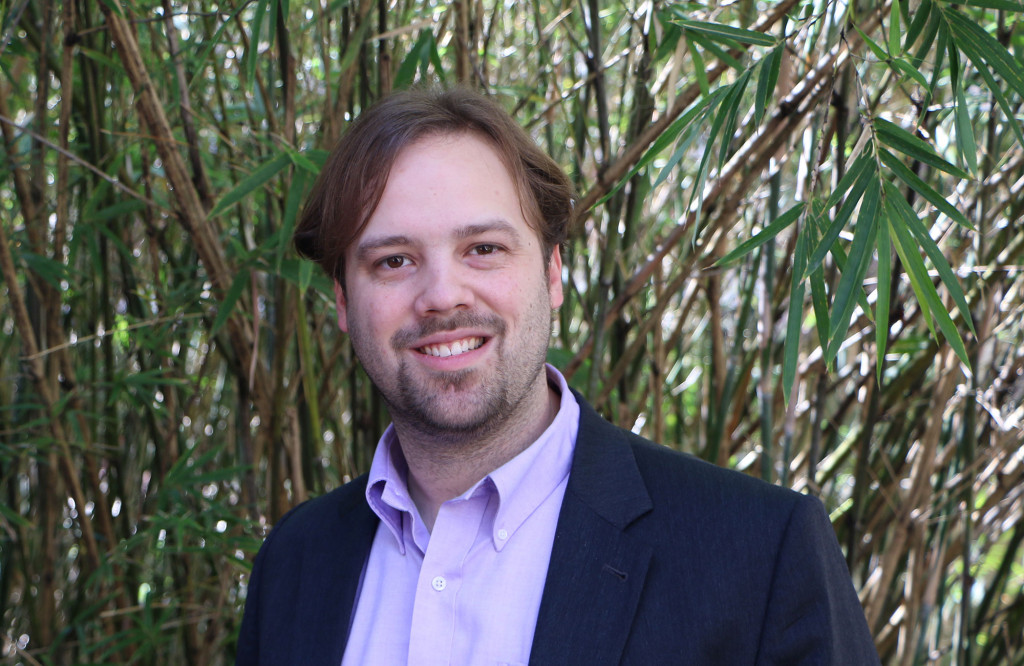Healthcare systems see significant promise in AI for improving care delivery and controlling costs, yet face significant barriers to safe and effective implementation, including concerns about AI accuracy, patient safety, and integration with health system workflows. Joel Harley, Ph.D., is working to overcome some of these barriers.
Harley is set to co-direct the Accessible Healthcare through AI-Augmented Decisions (AHeAD) Center as an NSF Industry University Cooperative Research Center (IUCRC). The successful funding of the initial planning grant to create the center was announced by the University of Louisiana (UL) at Lafayette, Tulane University and the Georgia Institute of Technology.
NSF AHeAD brings together university researchers with healthcare organizations and technologists to address barriers to deploying AI-augmented decision support tools that enhance healthcare delivery, improve patient outcomes, and reduce costs.

AHeAD brings together leading AI researchers and implementation experts to address challenges related to human-AI interaction, privacy-preserving AI, and the robustness of AI models. The center will create best practices, evaluation frameworks, open models, and practical toolkits that health organizations can use to deploy AI systems more safely and effectively, train next-generation AI healthcare specialists and accelerate industry-wide adoption.
The interdisciplinary center is led by Raju Gottumukkala, PhD, at UL Lafayette with co-directors Aron Culotta, PhD from Tulane University, Ghassan AlRegib, PhD, from Georgia Tech, with Harley as co-director. The center brings together an interdisciplinary team of researchers from computer science, systems engineering, health sciences, clinical, and public health across the four universities.
The center’s mission is particularly relevant for addressing gaps in healthcare delivery. As Gottumukkala explains,
“Healthcare quality today depends on geography and resources – with rural areas having provider shortages. AI, if implemented in the right way, has the power to democratize healthcare. Louisiana struggles with poor health outcomes, and AI can be quite transformative in creating accessible tools that can detect problems early and help people manage chronic conditions – reducing hospitals and costs while improving lives.”
Ramesh Kolluru, PhD, vice president of research, innovation, and economic development at UL Lafayette, adds, “We are on the cusp of a health technology revolution. By prioritizing practical applications and user-centric designs, we are committed to transforming lives and empowering individuals to take charge of their health like never before.” Kolluru continues, “AI research is where technology aligns with human values to transform society. UL Lafayette is proud to lead the AI innovation into the future.”
The center has garnered broad industry support, with over 50 organizations committed to the initiative, including: Acadian Ambulance Service, Alliance for AI in Health Care, Amazon AWS, Arthrex, AWS, Beta Health Services, Blue Cross Blue Shield, CGI, DOCPACE, Emory University, Exacttech, Franciscan Missionaries of Our Lady Health System, Google, Halifax Health, Haltian, Helix Laboratory Partners, Interia LLC, LPHI, Mathworks, Microsoft, MPLT Healthcare, MyLigo, Nestor Labs, Ochsner Health Systems, Omaha Children’s Hospital, One Telemed, Plato Protégé, Retina Consultants of Texas, Shands Hospital, Siemens, Southwest Research Institute, Sterling Health Services, Sunvestka, The Bean Path, Tulane Medical Group, VA – Southeast Louisiana Health Care System, VA Rural Health Resource Center, Veteran’s Affairs Hospital, and XRMedix.
This diverse consortium includes healthcare providers, technology companies, and specialized AI firms, reflecting the center’s comprehensive approach to implementing healthcare AI.
NSF Industry University Cooperative Research Centers
The well-established program accelerates the development of critical technologies from early-stage research to the marketplace. Since 1973, the NSF IUCRC program has fostered collaborative research, strengthened the national innovation ecosystem, supported workforce development, and accelerated technology transfer.

